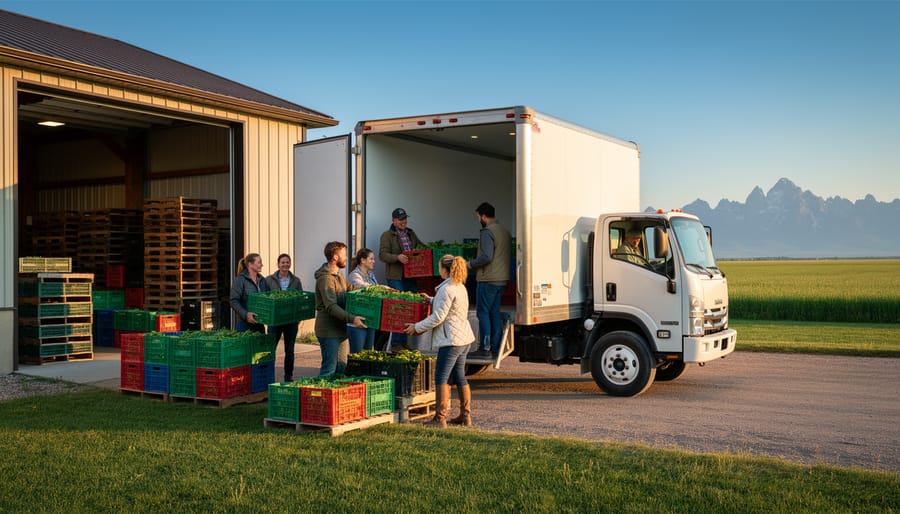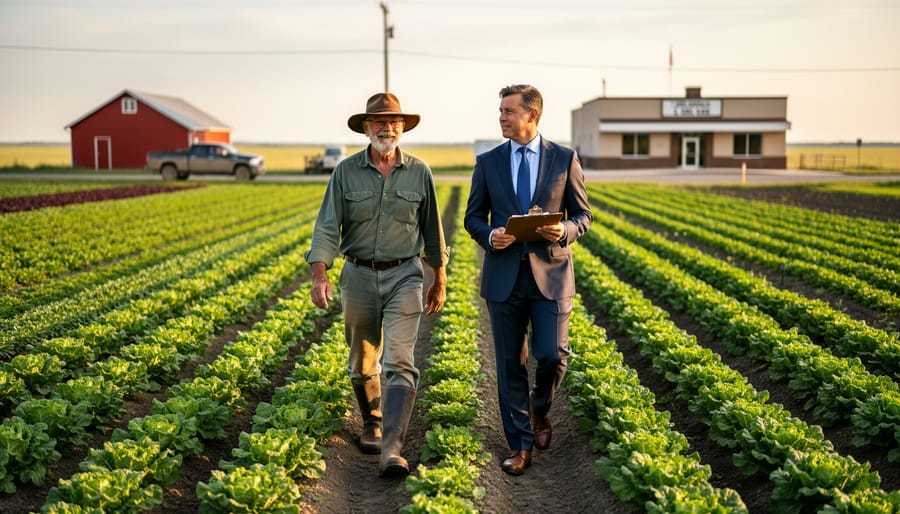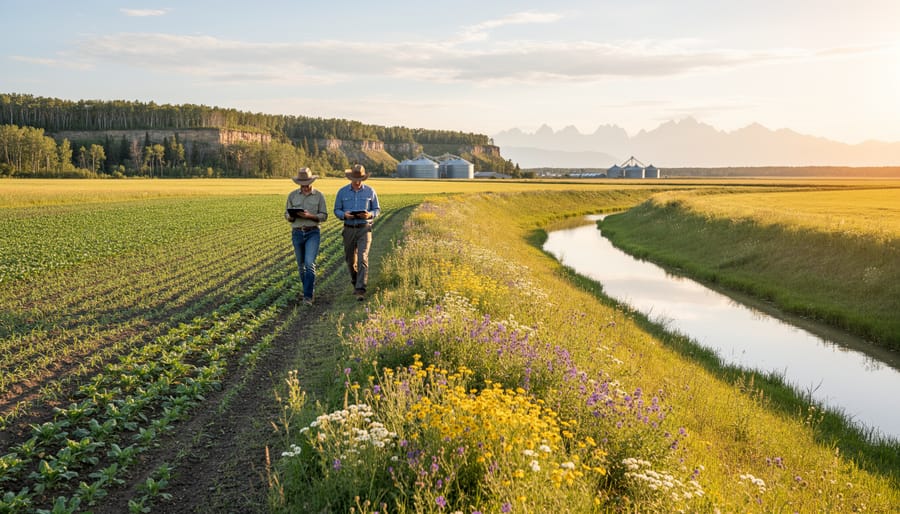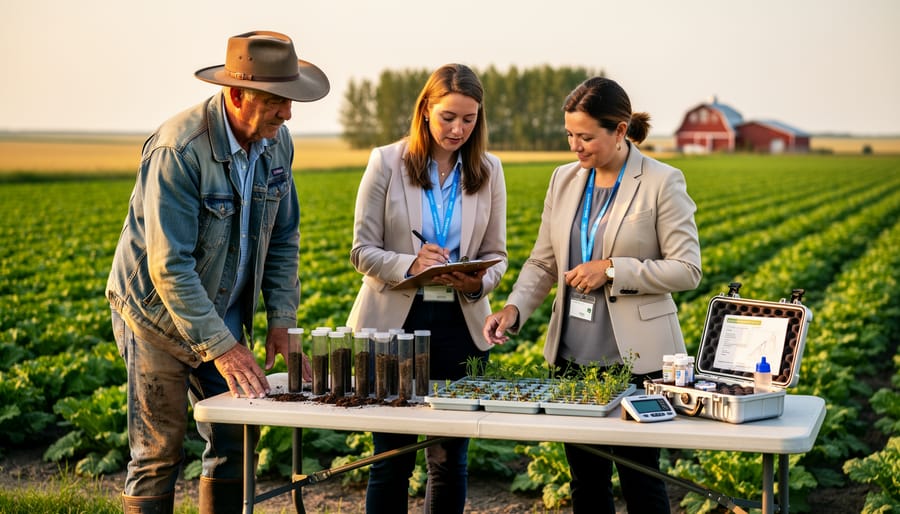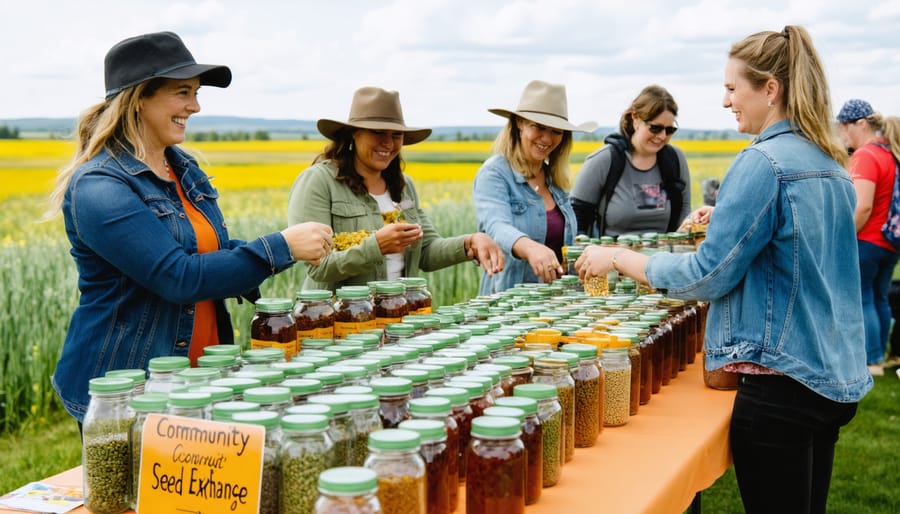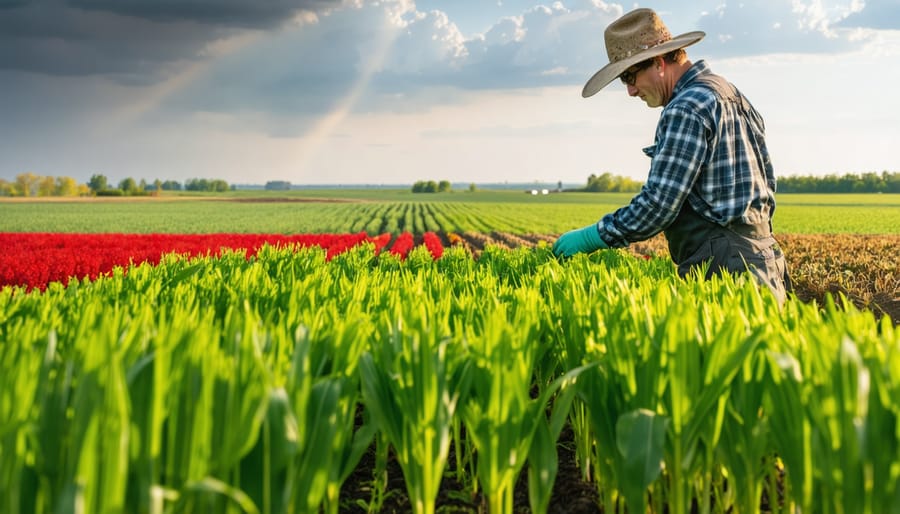Begin soil testing to assess nutrient levels and address deficiencies in preparation for organic certification. Transition to cover cropping practices by incorporating legumes and grasses to enhance soil fertility naturally. Integrate crop rotations and diverse planting strategies to suppress weeds and pests while improving biodiversity. Connect with local farming communities and join networks dedicated to organic farming to share experiences and access resources unique to the Alberta region.
Understanding the Transition to Organic Partnership Program
Program Objectives
The Transition to Organic Partnership Program aims to empower farmers in Alberta and beyond by promoting sustainable agricultural practices that are both economically viable and environmentally friendly. Key objectives include reducing the carbon footprint of farming operations through the adoption of eco-friendly techniques and technologies. This program also focuses on enhancing soil health, crucial for long-term productivity and resilience against climate change. By improving organic matter and utilizing crop rotation and composting, the program helps farmers rejuvenate their land, leading to healthier yields over time. Through expert insights and community support, the program seeks to build a network of informed and motivated farmers dedicated to a sustainable future, demonstrating the tangible benefits and feasibility of organic transitions in Canadian agriculture.
Key Features
The Transition to Organic Partnership Program offers a range of features designed to support Canadian farmers, particularly in Alberta, on their journey to sustainable agriculture. The program provides personalized guidance through local mentors who share industry expertise and practical insights, reducing the learning curve for new organic farmers. Participants can gain access to exclusive workshops and training sessions that focus on organic certification, pest management without synthetic chemicals, and soil health improvement. The program also includes financial incentives that help offset the initial costs of transitioning. Additionally, it connects farmers with a network of peers and experts, fostering a community that encourages sharing knowledge and resources. This holistic approach empowers farmers to confidently move towards organic farming, ensuring long-term environmental and economic sustainability.
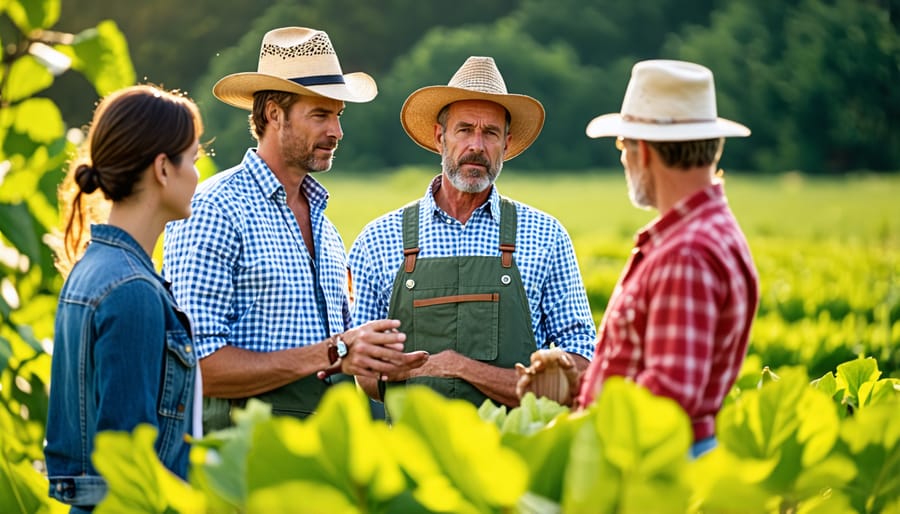
Benefits of Transitioning to Organic Farming
Environmental Benefits
Organic farming practices offer substantial environmental benefits, particularly for Canadian farmers transitioning as part of the organic partnership program. One prime advantage is the enhancement of soil health, achieved through natural composting and crop rotation, which replenishes soil nutrients and improves structure. This approach reduces the need for synthetic fertilizers, thus minimizing the risk of water pollution. Organic methods also promote biodiversity by creating more habitats for wildlife. For example, adopting polyculture techniques can attract beneficial insects and birds, which contribute to natural pest control. Moreover, organic farming efforts in Alberta demonstrate a positive shift in carbon sequestration, as soils rich in organic matter absorb and store carbon dioxide, crucial for mitigating climate change. Conversations with local Alberta farmers reveal a shared enthusiasm for the reduced reliance on chemical inputs and their impact on air and water quality. By supporting a robust ecological cycle, organic farming not only safeguards the environment but also fosters a resilient agricultural community.

Economic Opportunities
Transitioning to organic farming offers numerous economic opportunities, particularly for Canadian farmers in the Alberta region. By participating in the program, farmers can gain increased market access and enjoy premium pricing that organic products often command. The appetite for organic produce continues to grow, both locally and globally, creating a robust demand that Alberta farmers can capitalize on. This market shift is not just promising, but also practical, as organic farming aligns with sustainable agricultural practices that many consumers now prioritize. The organic market opens doors to diverse channels including local farmers’ markets, specialty stores, and export opportunities. In addition to these economic benefits, transitioning to organic can lead to reduced input costs and increase soil health, ultimately contributing to long-term farm sustainability and profitability. By connecting with local organic networks and accessing resources through the Transition to Organic Partnership Program, Alberta farmers can successfully navigate this transition, creating a community-driven support system that encourages and nurtures change.
Challenges Faced by Farmers
Technical and Financial Barriers
Transitioning to organic farming in Alberta presents both technical and financial challenges that can make the shift daunting for many Canadian farmers. The Organic Partnership Program seeks to mitigate these hurdles by offering comprehensive assistance to organic farmers. Technically, the change requires new knowledge in pest management and soil fertility—areas in which local workshops and expert consultations provide invaluable guidance. Financially, the initial investment for organic certification and potential decrease in short-term yields can strain resources. However, the program alleviates these concerns through subsidies and access to markets that value organic products, ensuring a smoother transition and long-term viability.
Adapting to New Practices
Transitioning to organic farming requires a shift in mindset and practices, a challenge made easier with practical support tailored to the Canadian farming context. Alberta farmers can benefit from workshops and mentorship programs that focus on soil health, pest management, and crop rotation strategies vital for organic success. Leveraging insights from Canadian agricultural case studies and interviews with experts, farmers are encouraged to embrace organic methods gradually. This phased approach minimizes risk and fosters understanding. Local partnerships provide additional resources, from financial incentives to peer support networks, ensuring farmers aren’t navigating the transition alone. Embracing these new practices not only supports individual success but contributes to a more sustainable community.
Case Studies: Success Stories from Alberta
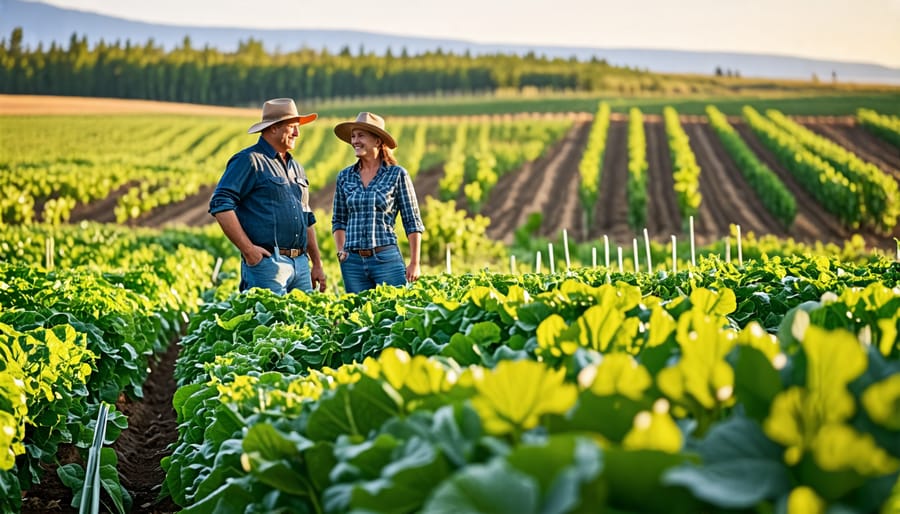
Case Study 1
Meet Lisa Porter, an organic farmer from Alberta who embodies success through resilience and innovation. Transitioning her 100-acre family farm to organic production was no small feat. Initially, Lisa faced soil nutrient deficiencies and weed management issues, common hurdles in switching to organic methods. However, her determination was key. She adopted crop rotation and cover cropping strategies to enhance soil health, leveraging legumes to naturally fix nitrogen. Her commitment to education also played a crucial role. Lisa sought expert advice from local agronomists and actively engaged with the organic farming community to refine her techniques. Today, her farm boasts diverse produce, including heritage grains and vegetables, thriving without synthetic inputs. Lisa’s journey illustrates that while the transition to organic farming is challenging, it is achievable with perseverance, strategic planning, and community support. Her story serves as an inspiring testament to farmers considering the organic path, encouraging them to embrace sustainable practices for both environmental and economic benefits.
Case Study 2
Michael, a third-generation farmer from southern Alberta, experienced significant growth through the transition to organic partnership program. Initially motivated by declining yields and unpredictable market prices, Michael sought a sustainable solution that would revitalize his land and stabilize his income. Through expert guidance and practical workshops provided by the program, he learned to implement organic practices that reduced his reliance on chemical inputs and improved soil health. Within three years, Michael observed a 25% increase in crop diversity and a substantial reduction in production costs, creating a more resilient farming operation.
Moreover, the transition enhanced his farm’s environmental footprint. Soil fertility steadily increased, leading to a natural uptick in biodiversity — elements he once thought unattainable. His commitment to organic farming drew interest from local consumers, bolstering his farm’s profitability through direct-to-market sales strategies. Michael’s success story exemplifies how a transition to organic farming can foster economic and environmental benefits, inspiring fellow Alberta farmers to consider sustainable practices tailored to their unique needs.
Expert Insights and Future Perspectives
Expert Interviews
Dr. Emily Graves, an agronomist with over 20 years of experience in organic farming, emphasizes the growing demand for organic products among consumers in Canada. She suggests that the transition to organic farming not only meets market demands but also enhances soil health and biodiversity. “Farmers transitioning in Alberta,” she notes, “are seeing improved resilience to climate extremes, a crucial benefit in today’s volatile weather patterns.” Additionally, John Parker, a successful organic farmer from Alberta, shares, “The community support here has been phenomenal. We’ve formed networks that exchange resources and knowledge, making the journey to organic much smoother.”
The Role of Innovation
Innovation plays a critical role in the transition to organic farming by providing Canadian farmers, particularly those in Alberta, with advanced tools and methods to enhance productivity while maintaining environmental sustainability. Technological advancements, from precision agriculture to bioinformatics, enable farmers to optimize resource use and maximize crop yields without relying on synthetic inputs. For instance, real-time soil sensors help in monitoring and managing soil health, leading to better decision-making and reduced wastage. Moreover, innovations such as drone technology facilitate efficient field monitoring and pest control. By embracing these innovations, farmers can more effectively engage in sustainable agriculture. Expert insights from successful Canadian case studies emphasize the significance of integrating technology into organic transition strategies, fostering a community of practice and support. As the journey towards organic farming progresses, continuous innovation becomes a vital catalyst in driving both economic and ecological benefits.
Conclusion
In conclusion, transitioning to organic farming offers numerous benefits for Alberta’s farmers, including environmental sustainability, improved soil health, and access to premium markets. By adopting organic practices, farmers can reduce reliance on synthetic fertilizers and pesticides, contributing to a healthier ecosystem. As highlighted through case studies and expert interviews, this transition is made more manageable with the support of partnership programs providing resources and expert guidance. Embracing organic farming can foster a community of innovation and resilience among Canadian farmers. Moving forward, consider leveraging available support to begin this rewarding journey towards sustainability.


